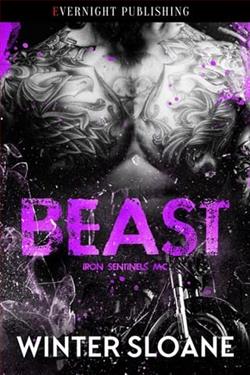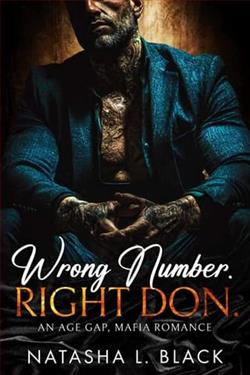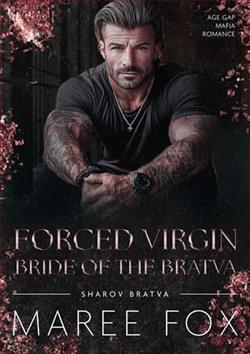Page 37 of Mistletoe
Hal remained silent, not introducing himself.
Oscar De Lacey offered a polite grin and carried on as if unbothered. “Now that the formalities are done, come and sit,” he said, gesturing to the empty rocking chair.
“I’m not sure that I should.”
“Nonsense. I’ve been wanting to talk with you for days now. If you had come yesterday morning, we would have enjoyed coffee.”
“You have coffee?” Hal wondered if it was real coffee or some locally grown coffee lookalike.
“Costs a pretty penny, but I have my little vices.” Oscar gestured to the empty chair again. “If you like, we can have some now.”
He desperately wanted the coffee. His mouth watered at the memory of sweet creamer masking a bitter brew.
“You’ve given me several filling meals. The least you can do is drink coffee with me,” Oscar cajoled.
“I can’t,” Hal said, backing down the steps. Snow crunched under every step.
“Perhaps a poetry book? Then we can discuss the merits of the work.” Oscar paused for Hal’s answer. When none came, he carried on and said, “It’s purely selfish on my part. I don’t get much opportunity for new conversation.”
“I’m not much for poetry.”
“I have other books in my collection. Botany? History?”
“History,” Hal said.
“Any particular subject? My collection is rather varied. Earth history?”
“Not Earth.”
“Then a history of our fair colony.”
“Yes,” Hal agreed. Hopefully, the book could fill in the gaps in his memory or at least give him an idea of the world he found himself in.
“The transcript says…hold on—”Hal flipped through the pages. The book felt both ludicrously small in his hands and ungainly thick. A paper book. How primitive. In his day—and yes, he was aware that made him sound a thousand years old—books were read on tablets with special ink screens that mimicked paper, not actual paper. The old man had loaned him several books that he devoured, but he still wasn’t over the novelty of a physical paper book.
“There is no transcript,” Oscar said.
“It’s right here.”
“No, the original transcripts were digital recordings. What’s in the books are the recollections of witnesses.”
Hal lowered the book to his lap. He sat on a simple bench. Oscar had offered him a rocking chair but Hal decided it looked too fragile for Hal’s size. Best to sit on the bench and not smash the nice furniture like a particularly clumsy beast rampaging in a china shop.
“The trial happened before the mutation,” he said, remembering Draven’s story.
“Yes, the Great Data Wipe. Do they still call it that? Young scholars are always trying to put their mark on academia, and I can’t keep up.”
“I don’t know what they call it,” Hal said honestly. He had devoured the book Oscar loaned him, reading it in one night.
“Regardless, that’s the weakness of history. It’s written after the fact, often by the victor. Firsthand accounts, memories of the witness and participants, must be taken with a grain of salt,” Oscar said. “I’m sure the facts of the event cannot be disputed, but imagine what Ethan Radcliffe would say if we had his memoir.”
Hal tried to recall what information Draven shared: the dangerous radiation levels, the genetic manipulation to adapt, and the unforeseen consequences once they arrived on the planet. What Draven failed to mention was that he acted against the captain’s orders and that people died as a result.
What a convenient bit of information to forget to share.
Draven also failed to mention that he had been arrested and put on trial as soon as the ship landed.
“I wouldn’t trust a word out of his mouth,” Hal said.















